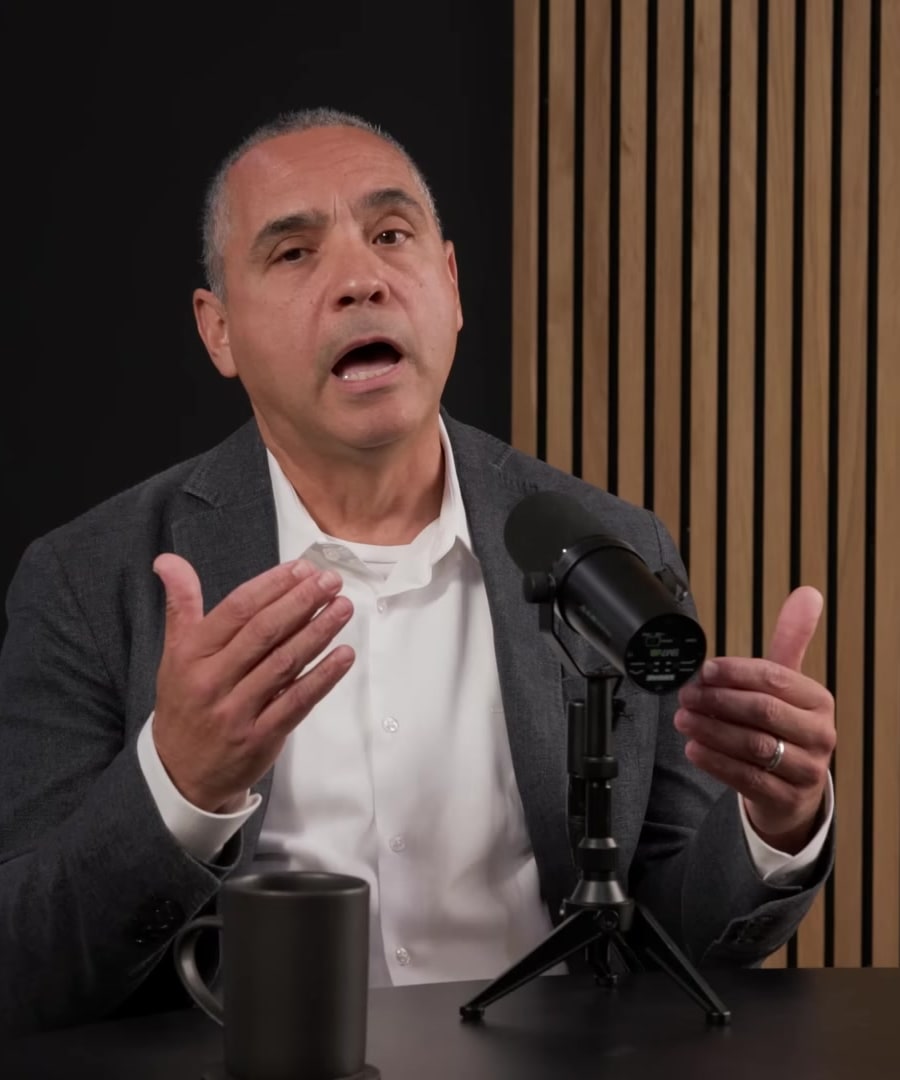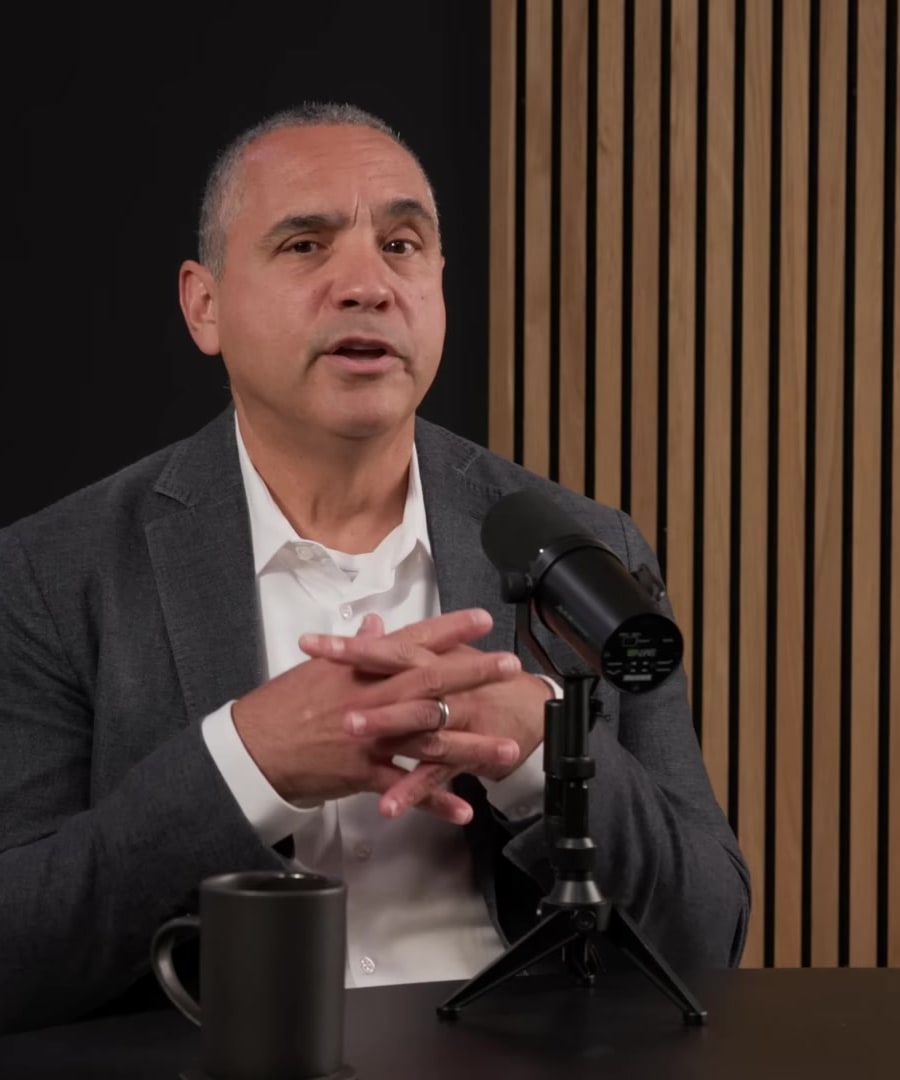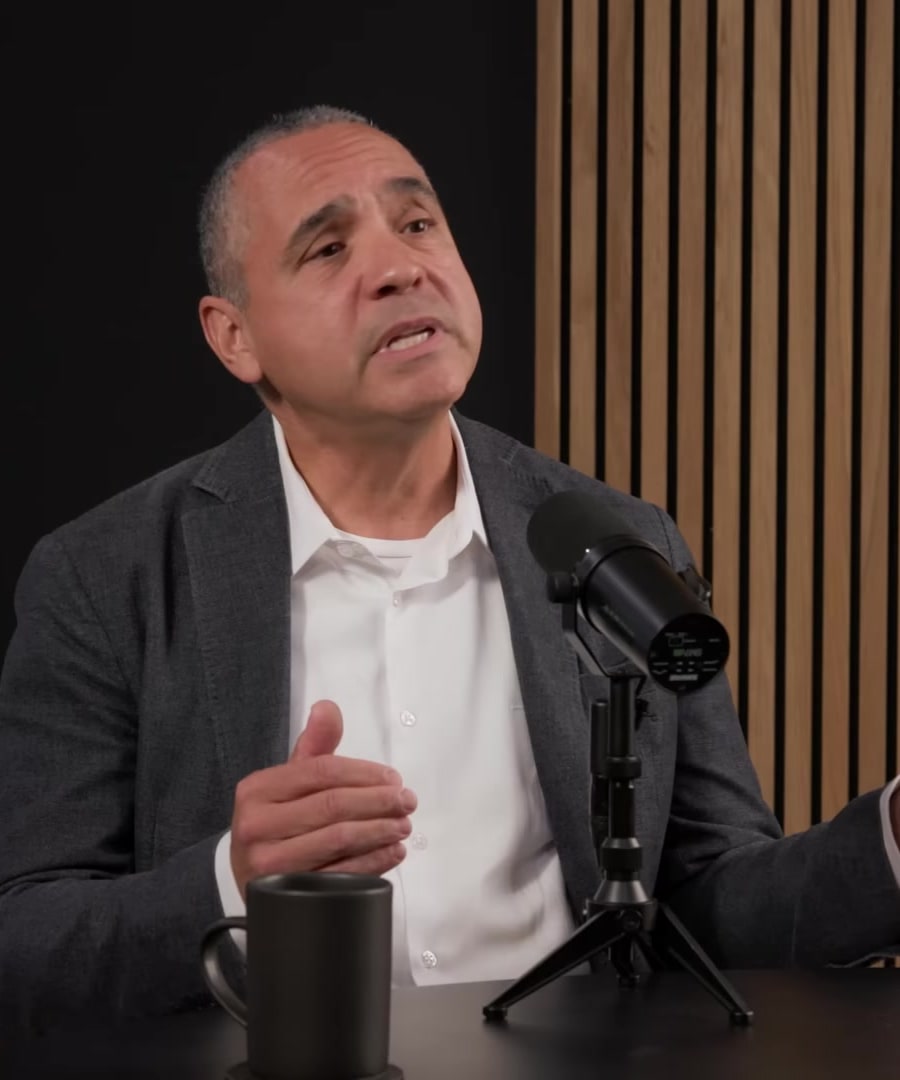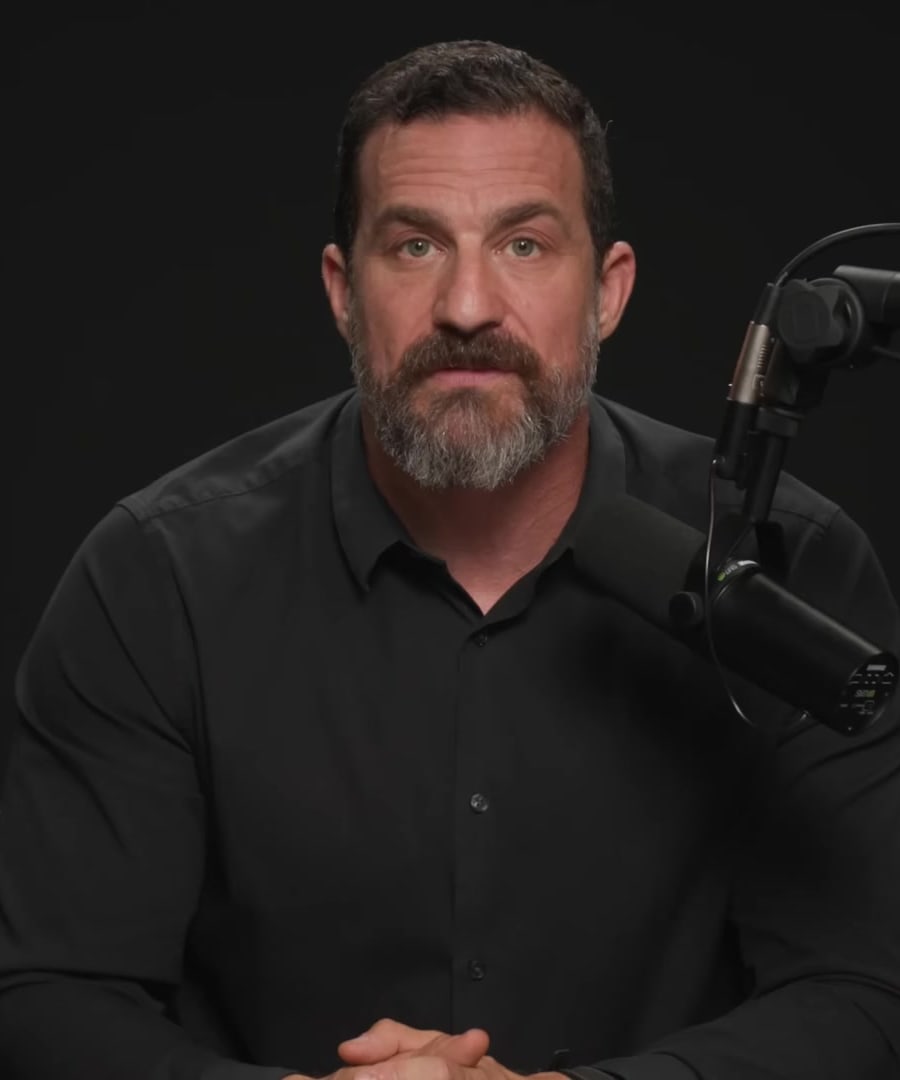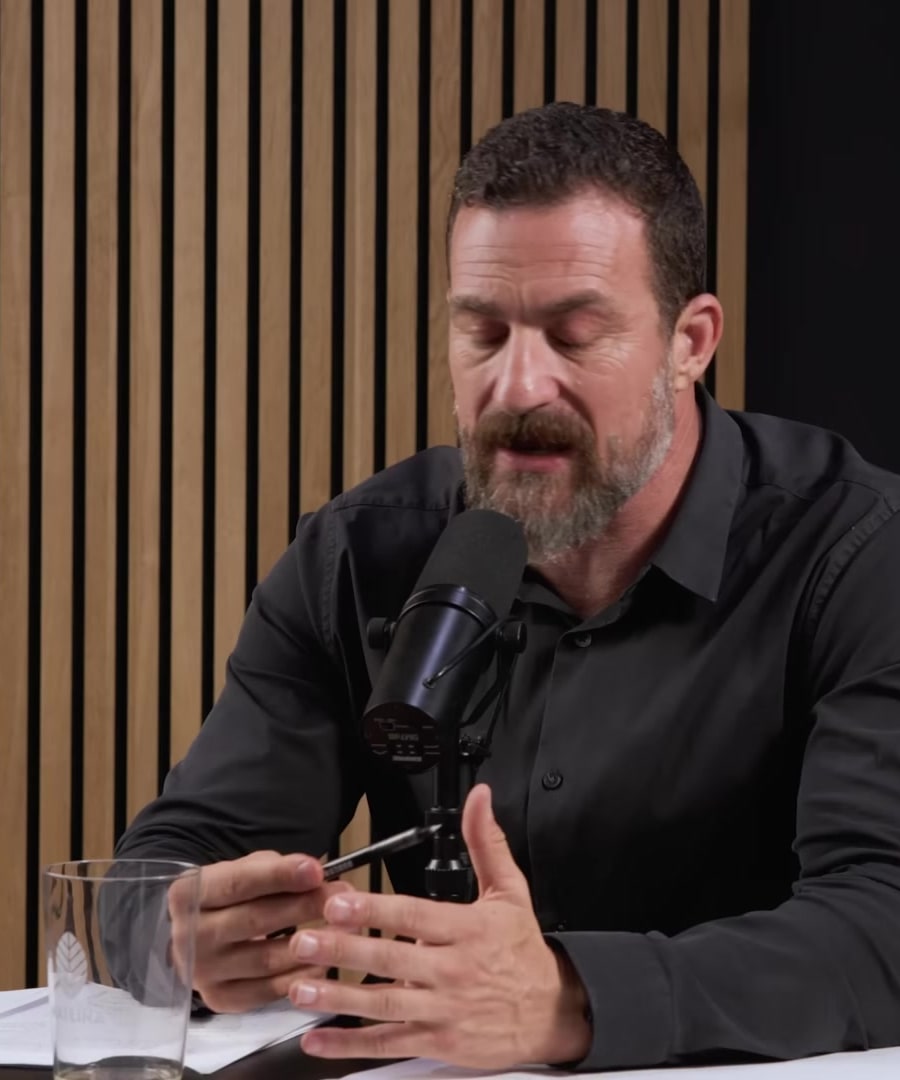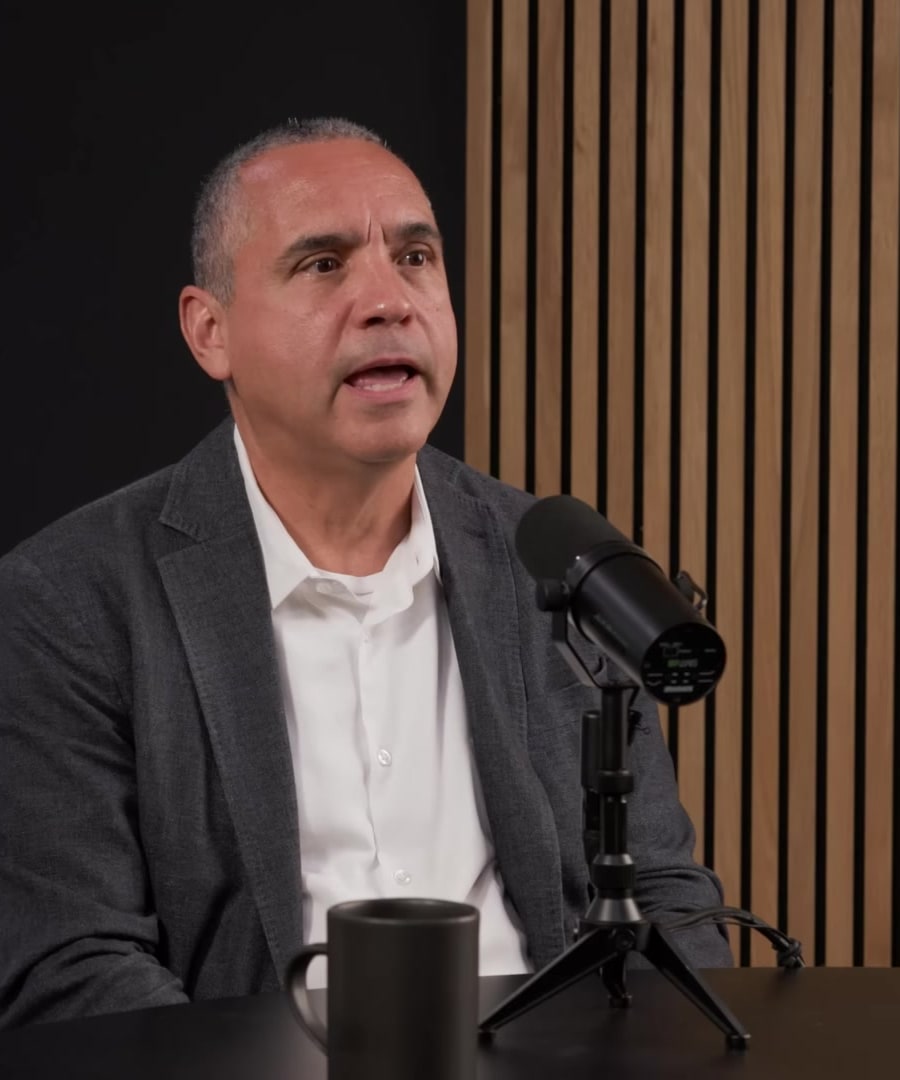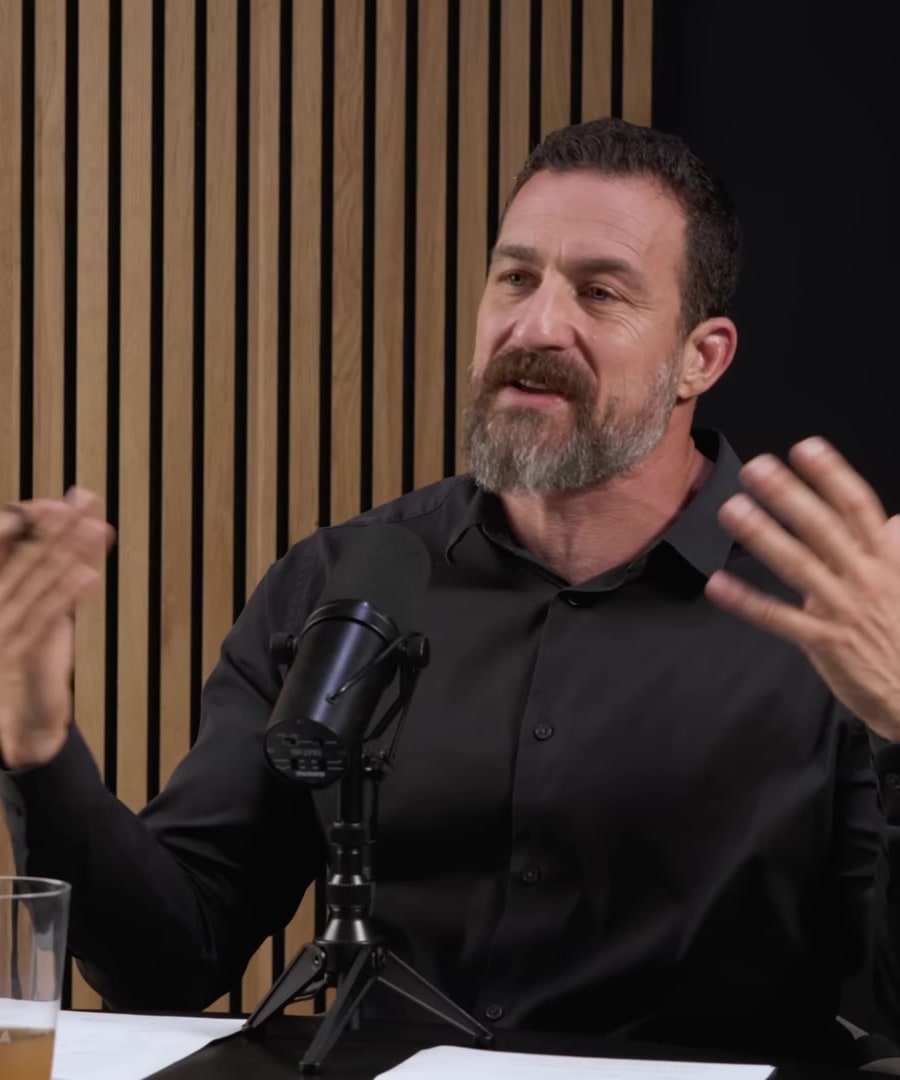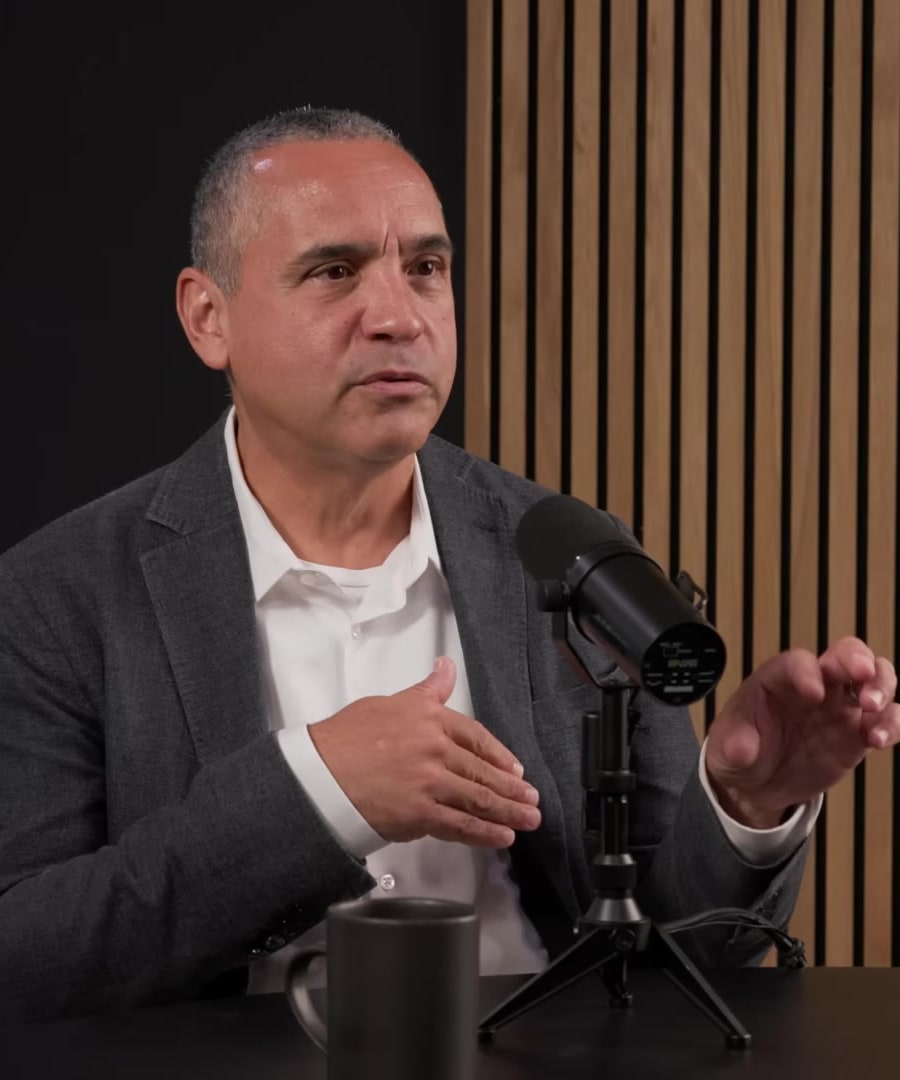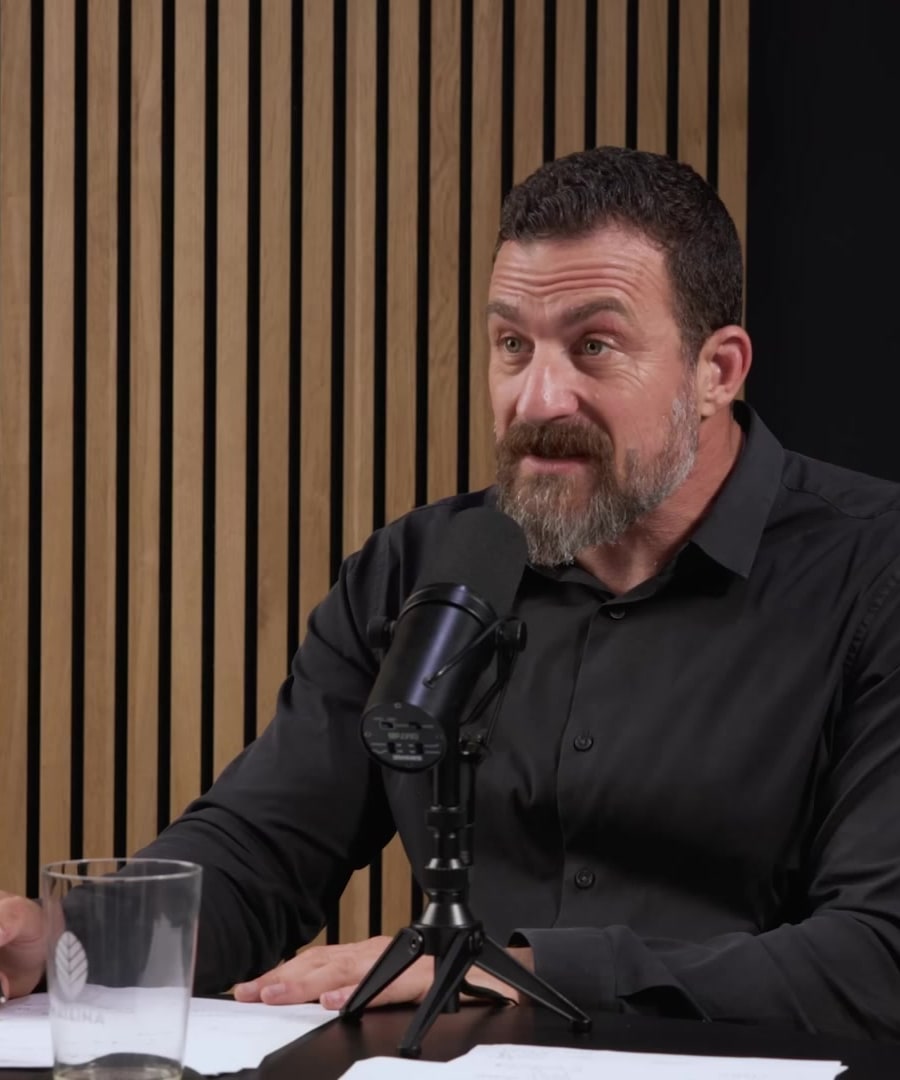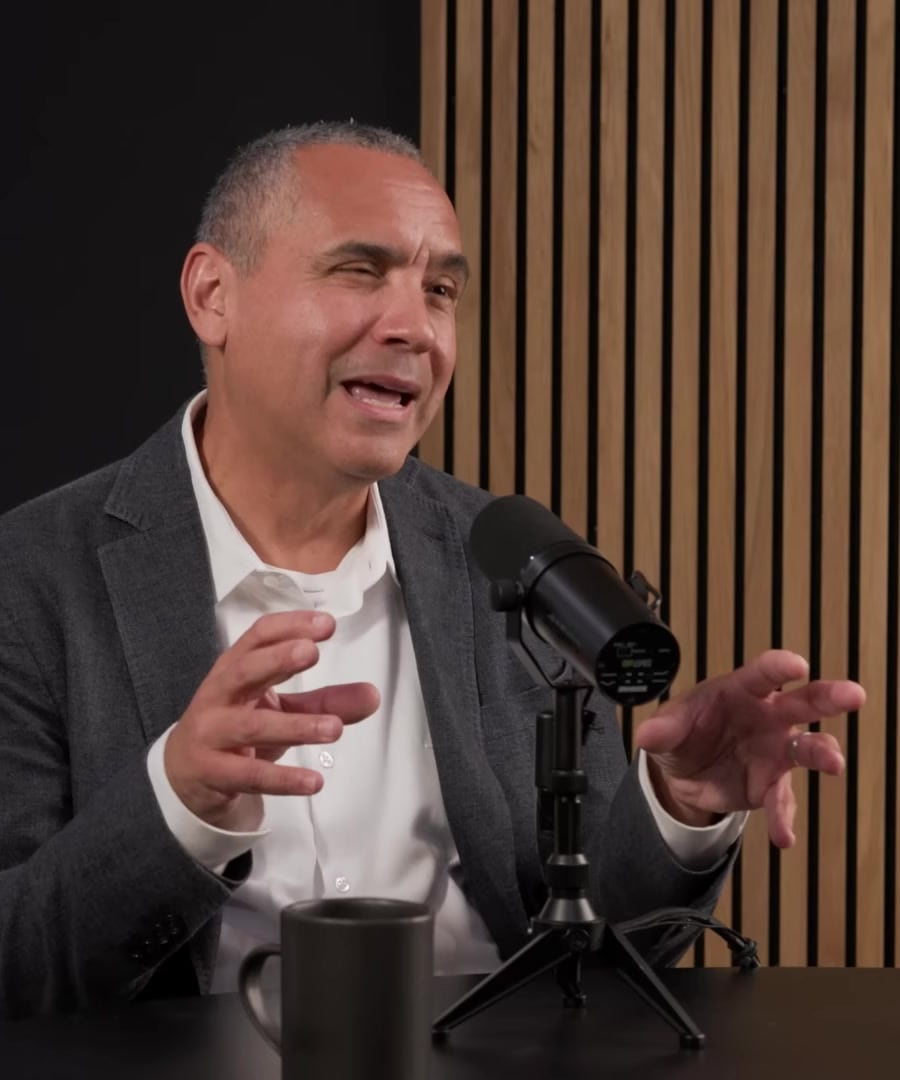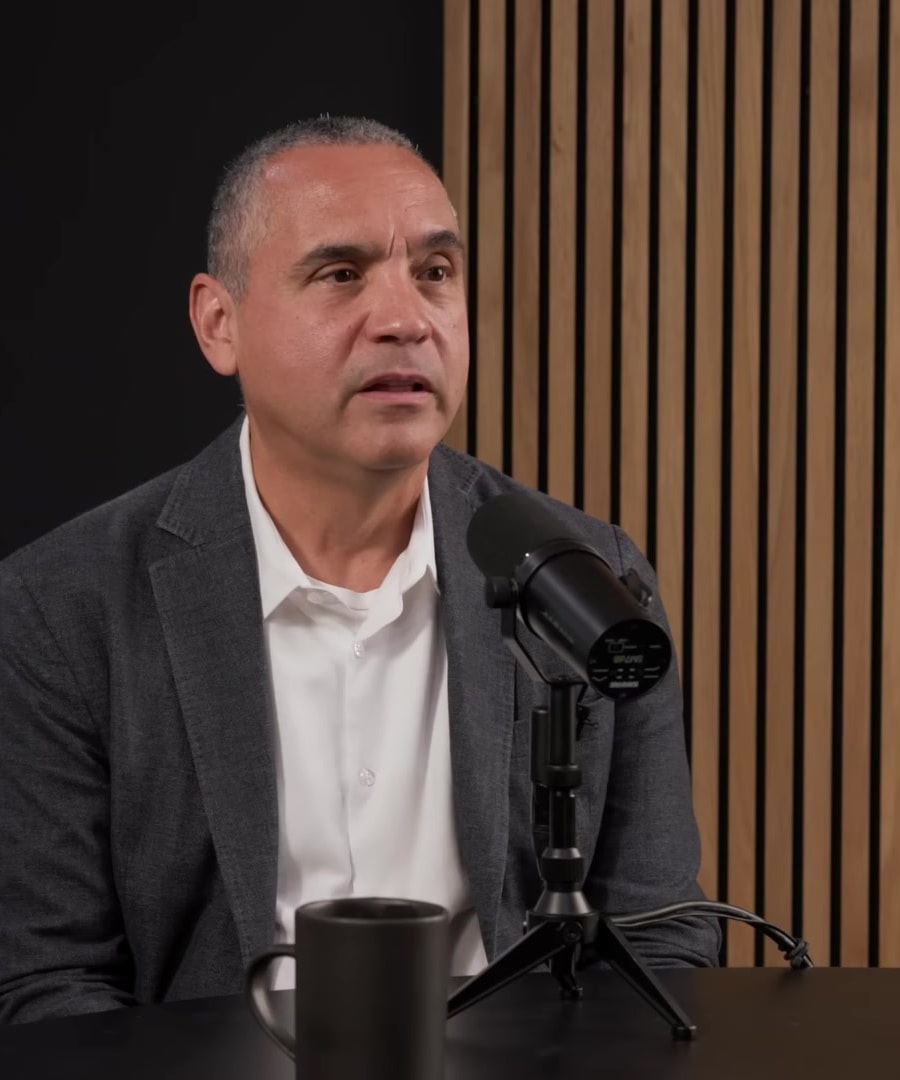Summarize episode Dr. Victor Carrión: How to Heal From Post-Traumatic Stress Disorder (PTSD)
Sources:
In the , Dr. Victor Carrión discusses various aspects and treatments of PTSD, particularly focusing on its impact on children. Here are the key points:
-
Understanding PTSD: Dr. Carrión emphasizes the spectrum of stress experiences from beneficial to traumatic, highlighting that stress works as an inverted U-shaped curve in our lives. Some stress can enhance performance until it reaches a tipping point where it becomes detrimental to health and performance 1 2.
-
Children's Vulnerability: Carrión explains that children are particularly vulnerable to PTSD due to their heightened neuroplasticity. This can make them more susceptible to trauma but also means they can recover more easily with proper support 3.
-
Symptoms and Diagnosis: He notes that many children exhibit PTSD symptoms without a formal diagnosis, leading to functional impairments in daily activities like school and relationships. Avoidance behavior can exacerbate symptoms and hinder recovery 4 1.
-
Treatment Innovations: Carrión highlights the importance of accessible mental health resources. He introduces Q-centered therapy and emphasizes mindfulness and self-directed hypnosis as effective techniques for both caregivers and patients. These practices are particularly useful for communities with limited access to traditional mental health services 5.
-
Listening and Healing: The episode concludes with a powerful message on the importance of listening to those affected by PTSD. Creating supportive environments where individuals feel heard can significantly aid in their healing process. Carrión underscores that the most effective mental health professionals prioritize listening over speaking 6.
Overall, the episode sheds light on the complexities of PTSD, particularly in children, and offers innovative approaches to treatment and recovery.
RELATED QUESTIONS-
List clips similar to "Understanding PTSD Dynamics"
Sources:
Here are two clips similar to "Understanding PTSD Dynamics":
-
Understanding PTSD Triggers:
- This clip highlights the subtle nature of PTSD triggers, emphasizing the importance of recognizing personal cues that can lead to hyperarousal. It discusses the challenges individuals, including children, face in articulating their experiences due to a lack of language for the mind-body connection. The impact of prior trauma, such as child maltreatment, on the prevalence of PTSD among veterans is also noted 1.
-
Understanding PTSD Dynamics:
- In this clip, resilience and functional impairments in daily life due to PTSD are discussed. Dr. Carrión mentions that many children exhibit PTSD symptoms without a formal diagnosis, leading to issues like poor school performance and problematic relationships. Avoidance behavior can worsen PTSD symptoms, making them harder to treat 2.
These clips delve into various aspects of PTSD, including triggers, functional impacts, and the importance of addressing avoidance behavior.
RELATED QUESTIONS-
Are there episodes related to childhood trauma and PTSD?
Here is an episode from the related to childhood trauma and PTSD:
Episode
[Dr. Victor Carrión: How to Heal From Post-Traumatic Stress Disorder (PTSD)]{sid=doc_141553}
- Host:
- Guest: , Professor of Child Psychiatry at Stanford
- Topics Covered: Resilience, adaptation, understanding PTSD, understanding stress dynamics, childhood vulnerability, transgenerational trauma, and innovative trauma treatment.
This episode provides in-depth insights into PTSD, its impact on children, and strategies for healing and building resilience. It touches on various crucial points like cortisol's role in PTSD, attention and trauma, and emerging therapeutic approaches.
RELATED QUESTIONSTell me about Victor Carrión
Sources:
is a distinguished expert in child and adolescent psychiatry. He holds the position of John A. Turner, M.D. Endowed Professor of Child and Adolescent Psychiatry and is also the Vice Chair of the Department of Psychiatry and Behavioral Sciences at Stanford University. Dr. Carrión is renowned for his expertise in understanding and treating post-traumatic stress disorder (PTSD) across all age groups.
RELATED QUESTIONSTell me about Victor Carrión
Sources:
is the John A. Turner, M.D. Endowed Professor of Child and Adolescent Psychiatry at Stanford University. He also serves as the Vice Chair of the Department of Psychiatry and Behavioral Sciences. Dr. Carrión is highly recognized for his expertise in understanding and treating post-traumatic stress disorder (PTSD) across all age groups.
RELATED QUESTIONSWhat is his primary research focus?
Sources:
Dr. primarily focuses on understanding and treating post-traumatic stress disorder (PTSD) across all age groups. His expertise lies in child and adolescent psychiatry, and he is highly regarded for his work in this area at Stanford University.
RELATED QUESTIONSWhat are Dr. Carrión's major findings?
Sources:
Dr. has made several significant research findings related to trauma, stress, and PTSD, particularly in children and adolescents:
-
Genetic and Epigenetic Impact of Trauma: He discovered that trauma can affect gene activity through epigenetic changes, particularly genes related to the glucocorticoid receptors and collagen formation. This is linked to accelerated aging and stress-related conditions like atherosclerosis 1.
-
Importance of Deep Sleep: His research indicated that trauma interventions like mindfulness and yoga can improve sleep quality and duration, increasing deep sleep and reducing amygdala activity, which is important for emotional regulation 2.
-
Biology of Resilience: His studies using organoids (mini brains in a dish) exposed to cortisol have helped identify genes that protect against stress. This work bridges molecular genetics and real-world interventions, revealing potential targets for novel PTSD treatments 3.
-
Role of Early Support and Interventions: He emphasizes that children are highly vulnerable to PTSD due to their brain's plasticity. Providing a supportive environment and teaching resilience tools can foster recovery 4.
-
Mindfulness and Yoga in Schools: He has successfully implemented large-scale mindfulness and yoga interventions in schools, demonstrating their effectiveness in reducing PTSD symptoms and improving overall mental health 5.
-
Avoidance and PTSD: He notes that avoidance behaviors can worsen PTSD, leading to substance abuse and other complications. Addressing and processing traumatic events with structured clinical support is crucial for recovery 6.
These findings underscore the complex interplay between genetics, environment, and therapeutic interventions in managing and mitigating the effects of trauma.
RELATED QUESTIONS-
Summarize Dr. Victor Carrión: How to Heal From Post-Traumatic Stress Disorder (PTSD)
Sources:
In the , , a professor of child psychiatry at Stanford, explores the complexities of PTSD, its causes, effects, and innovative treatment options. Here are some key points discussed:
-
Understanding PTSD: Dr. Carrión explains PTSD's spectrum, ranging from beneficial stress to traumatic stress, which can negatively affect both children and adults. He emphasizes that structured support is crucial for recovery, as unstructured rumination can deepen trauma 1 2.
-
Childhood Vulnerability: Children are particularly vulnerable to PTSD due to their brain's plasticity. While this makes them more susceptible to trauma, it also means they can recover more effectively with the right support 3.
-
Stress Dynamics: Dr. Carrión highlights that stress operates on an inverted U-shaped curve, where a certain amount of stress can be beneficial, but excessive stress, particularly traumatic stress, can cause significant harm 4.
-
Avoidance Issues: Avoiding dealing with trauma can exacerbate PTSD, leading to complications like substance abuse and self-injurious behaviors. Addressing and processing traumatic events in a structured way is essential 2.
-
Innovative Treatments: Integrative approaches, including mindfulness, yoga, and self-directed hypnosis, are highlighted as effective tools in trauma treatment. These practices not only help those affected directly by trauma but also provide support for caregivers 5.
-
Listening and Support: Dr. Carrión stresses the importance of listening to those affected by PTSD. Creating supportive environments where individuals feel safe and understood can significantly aid in their recovery 6.
Through this episode, and provide a comprehensive overview of PTSD, emphasizing the importance of recognizing and addressing trauma with tailored, supportive interventions.
RELATED QUESTIONS-
Summarize episode Dr. Victor Carrión: How to Heal From Post-Traumatic Stress Disorder (PTSD)
- RELATED QUESTIONS
List clips similar to "Understanding PTSD Dynamics"
- RELATED QUESTIONS
Are there episodes related to childhood trauma and PTSD?
- RELATED QUESTIONS
Tell me about Victor Carrión
- RELATED QUESTIONS
Tell me about Victor Carrión
- RELATED QUESTIONS
What is his primary research focus?
- RELATED QUESTIONS
What are Dr. Carrión's major findings?
- RELATED QUESTIONS
Summarize Dr. Victor Carrión: How to Heal From Post-Traumatic Stress Disorder (PTSD)
- RELATED QUESTIONS
